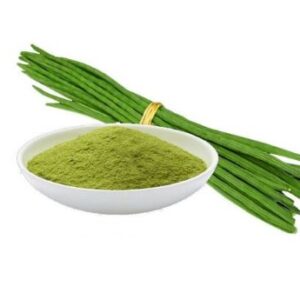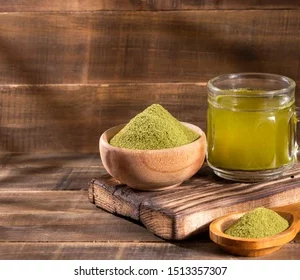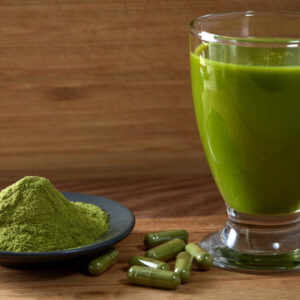Moringa, often referred to as the “miracle tree,” has garnered attention worldwide for its remarkable nutritional value and health benefits. From its historical roots to its modern applications, this plant has emerged as a powerhouse for transforming health naturally.
Table of Contents
Introduction to Moringa
What is Moringa?
Moringa, scientifically known as Moringa oleifera, is a versatile plant native to parts of Africa and Asia. It’s hailed as a “miracle tree” due to its extraordinary nutritional content and numerous health benefits. This plant has been historically significant, with roots in traditional medicine and cultural practices spanning centuries.
Every component of the Moringa tree boasts incredible nutritional richness. Its leaves are dense with essential vitamins such as vitamin A, C, and E, as well as minerals like calcium, potassium, and iron. Additionally, it contains powerful antioxidants that combat oxidative stress and bolster overall health.
Beyond its nutrient density, Moringa is valued for its adaptability to various climates and its ability to thrive even in harsh conditions. Its leaves, pods, seeds, and flowers serve multiple purposes, from being a food source to having medicinal properties. This adaptability and versatility have made it a crucial resource in regions where access to diverse nutrients is limited.
Traditionally, Moringa has been utilized to address various health concerns. It’s been employed to boost immune function, alleviate inflammation, aid in digestion, and support heart health. Its applications in traditional medicine are diverse and have contributed significantly to its reputation as a plant with exceptional healing properties.
In summary, Moringa stands as an invaluable natural resource, celebrated for its diverse nutritional profile and extensive health benefits across cultures and geographical boundaries.
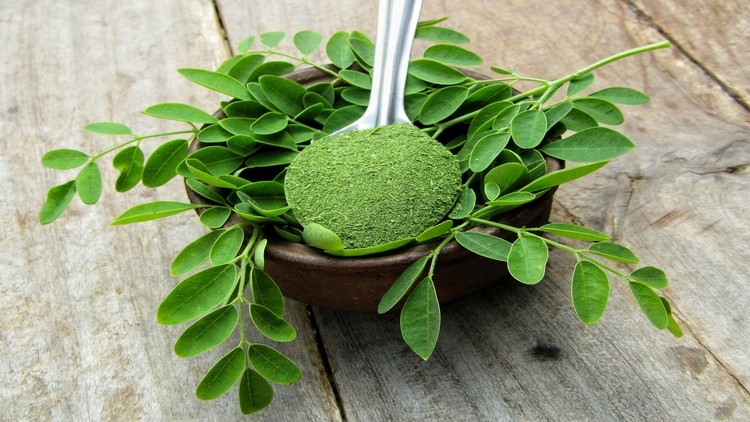
Historical Uses
Throughout history, Moringa has been utilized in traditional medicine systems for its diverse healing properties. Ancient civilizations recognized its ability to alleviate various ailments, earning it a revered status in folklore and traditional practices.
Nutritional Profile of Moringa
The nutritional profile of Moringa is exceptionally rich, making it a powerhouse of essential nutrients. This plant contains a diverse array of vitamins, minerals, and antioxidants, contributing to its status as a superfood.
Here’s a breakdown of the key components found in Moringa:
Vitamins: Moringa leaves are abundant in various vitamins, including:
- Vitamin A: Crucial for vision, skin health, and immune function.
- Vitamin C: Known for its antioxidant properties, vital for immunity and skin health.
- Vitamin E: An antioxidant that supports healthy skin and acts as a protective agent against oxidative stress.
Minerals: Moringa is a source of essential minerals such as:
- Calcium: Important for bone health and muscle function.
- Potassium: Helps regulate blood pressure and maintain proper heart function.
- Iron: Essential for the formation of red blood cells and oxygen transport in the body.
Antioxidants: Moringa is packed with antioxidants like flavonoids, polyphenols, and ascorbic acid. These compounds help combat oxidative stress by neutralizing harmful free radicals in the body.
Furthermore, Moringa contains protein, essential amino acids, and beneficial plant compounds, making it a comprehensive source of nutrition.
This impressive nutritional profile of Moringa contributes significantly to its reputation as a nutrient-dense superfood, offering a wide array of health benefits when incorporated into a balanced diet.
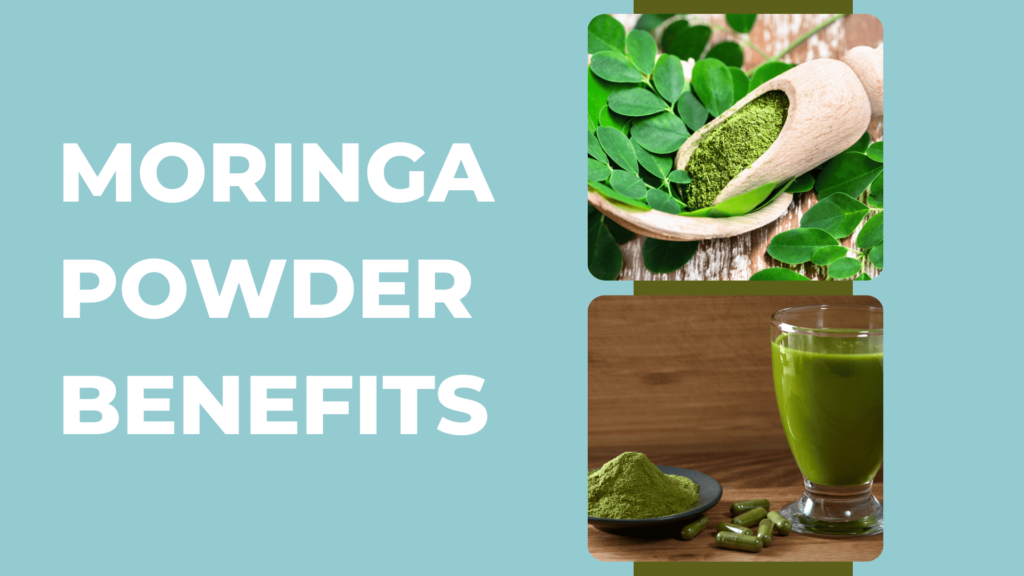
Antioxidants and Their Benefits
Here are some key points about antioxidants and their benefits:
1. Fighting Free Radicals: Free radicals are unstable molecules that can damage cells, leading to oxidative stress. Antioxidants neutralize these free radicals, preventing or minimizing their harmful effects on the body.
2. Protecting Cells: Antioxidants protect cells from oxidative damage by stabilizing free radicals. This protection helps maintain the integrity of cells and supports overall cellular health.
3. Anti-Aging Properties: Oxidative stress contributes to aging processes. Antioxidants, by reducing oxidative damage, may help slow down the aging of cells and tissues, potentially supporting healthier aging.
4. Boosting Immune Function: Antioxidants play a role in supporting the immune system by reducing oxidative stress on immune cells. This can enhance the body’s ability to fight off infections and diseases.
5. Reducing Inflammation: Some antioxidants have anti-inflammatory properties, helping to alleviate inflammation in the body. This can be beneficial in managing various inflammatory conditions.
6. Supporting Heart Health: Certain antioxidants, like those found in Moringa, have been linked to promoting heart health by reducing oxidative damage to the cardiovascular system. This can contribute to a lower risk of heart diseases.
Incorporating antioxidant-rich foods, such as Moringa, into your diet can help ensure a sufficient intake of these beneficial compounds. By doing so, you provide your body with the tools it needs to combat oxidative stress and support overall health and well-being.
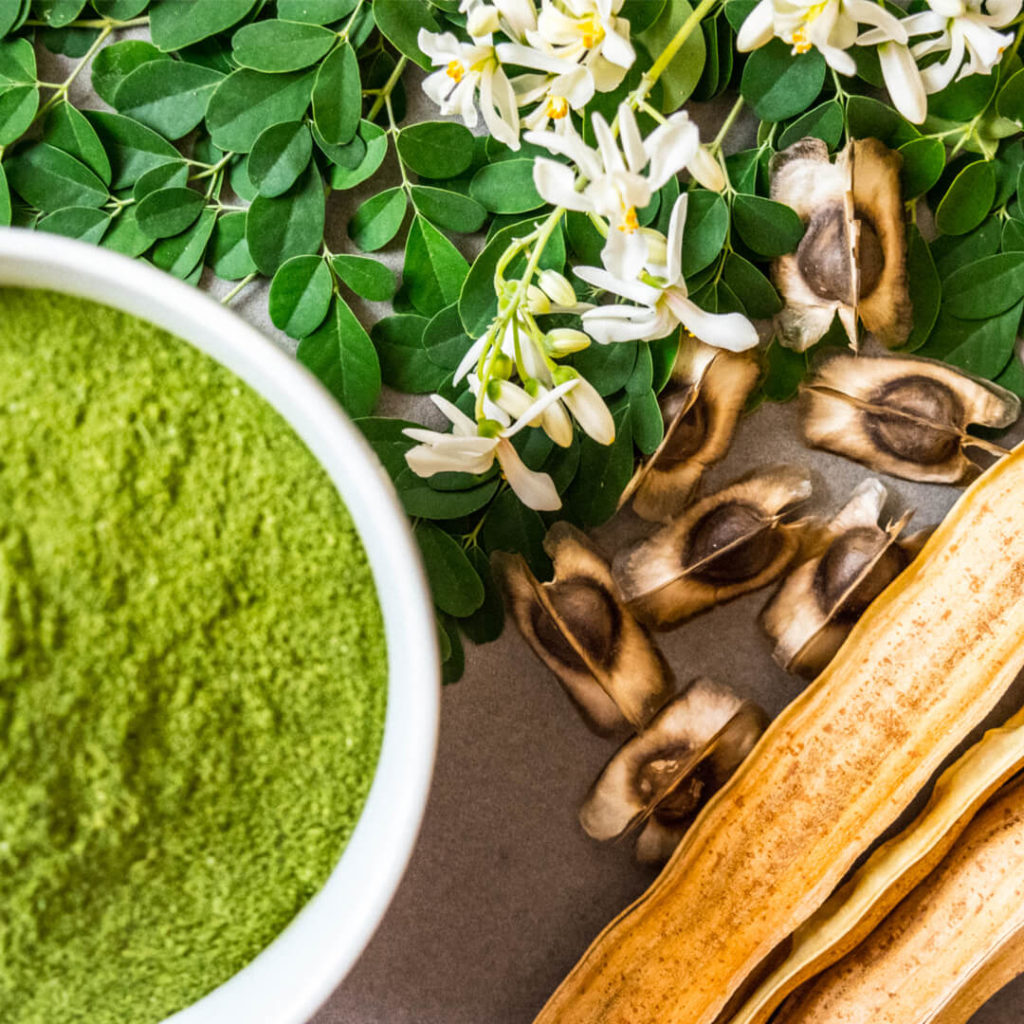
Health Benefits of Moringa
1. Nutrient Density: Moringa is packed with essential vitamins (A, C, E), minerals (calcium, potassium, iron), and antioxidants, providing a comprehensive array of nutrients crucial for overall health.
2. Boosts Immune System: Its high vitamin and antioxidant content bolster the immune system, helping the body defend against infections and illnesses.
3. Supports Heart Health: Moringa’s anti-inflammatory properties and ability to reduce cholesterol levels may contribute to a healthier heart and a lower risk of cardiovascular issues.
4. Anti-Inflammatory Effects: Compounds in Moringa possess anti-inflammatory properties, aiding in reducing inflammation in the body, which is linked to various chronic diseases.
5. Enhances Energy Levels: Moringa is recognized for its role in boosting energy levels and fighting fatigue, making it beneficial for combating tiredness and promoting vitality.
6. Promotes Skin and Hair Health: Its antioxidants and nutrients support healthy skin and hair, potentially reducing signs of aging and enhancing hair strength.
7. Aids Digestive Health: Moringa may support digestive function and alleviate digestive issues due to its fiber content and potential anti-inflammatory effects.
8. Assists in Weight Management: Its ability to promote a healthy metabolism and aid in weight loss has made Moringa a valuable addition to some dietary regimens.
These benefits make Moringa a versatile and valuable natural supplement for promoting overall health and well-being. Incorporating Moringa into your daily routine may offer a range of advantages, contributing to a healthier lifestyle.

Ways to Incorporate Moringa into Diet
There are various creative and easy ways to incorporate Moringa into your daily diet. Here are some suggestions:
1. Moringa Powder: This is one of the most versatile forms of Moringa. You can:
- Mix it into smoothies or juices for a nutritious boost.
- Sprinkle it over yogurt, oatmeal, or cereal for added nutrients.
- Blend it into salad dressings or dips for a health kick.
2. Moringa Tea: Brew Moringa leaves into a refreshing tea. You can:
- Steep dried Moringa leaves in hot water for a few minutes.
- Add honey or lemon for extra flavor.
3. Moringa Capsules or Supplements: If you prefer a more convenient option, take Moringa supplements with your meals following the recommended dosage.
4. Moringa Leaves in Cooking: Incorporate fresh Moringa leaves into your meals:
- Stir-fry them with other vegetables or add them to soups and stews.
- Use them as a nutritious addition to salads.
5. Moringa Oil: Use Moringa oil in cooking or as a dressing for salads to benefit from its nutrients and antioxidants.
6. Moringa Snacks: Make homemade snacks using Moringa powder:
- Mix it into energy bars, granola, or protein balls for a healthy snack option.
- Bake Moringa into cookies or muffins for a nutritious treat.
These methods offer diverse ways to incorporate Moringa into your diet, allowing you to enjoy its nutritional benefits in various forms and dishes. Experimenting with different recipes and applications can make it easier to incorporate this nutrient-rich plant into your daily meals and snacks.
Moringa in Traditional Medicine
Moringa has a rich history of use in traditional medicine across various cultures, where it has been esteemed for its medicinal properties and healing potential. Here’s a glimpse into Moringa’s role in traditional medicine:
**1. Cultural Significance: Moringa holds cultural significance in traditional medicine practices in regions where it is indigenous. It is often regarded as a symbol of health and vitality, with its various parts used for therapeutic purposes.
**2. Historical Usage: Throughout history, Moringa has been utilized to address a range of health concerns. Its leaves, seeds, and roots have been employed to treat ailments such as digestive issues, skin conditions, and respiratory problems.
**3. Nutrient-Rich Tonic: Moringa is considered a nutrient-rich tonic, with traditional healers using it to replenish vital nutrients in individuals suffering from deficiencies. It’s often prescribed to boost overall well-being.
**4. Anti-Inflammatory and Analgesic Properties: In traditional medicine, Moringa is recognized for its anti-inflammatory and analgesic properties. It has been used to alleviate pain and reduce inflammation associated with various conditions.
**5. Digestive Aid: Moringa is believed to support digestive health. It has been historically used to ease digestive discomfort, enhance nutrient absorption, and promote a healthy gut.
**6. Anti-Infective Properties: Traditional practitioners have applied Moringa to combat infections. Its antimicrobial properties are thought to assist in fighting bacterial, viral, and fungal infections.
**7. Wound Healing: The leaves and oil of the Moringa plant have been used topically for wound healing. Its anti-inflammatory and antimicrobial effects are believed to contribute to the acceleration of the healing process.
While modern science continues to explore and validate these traditional uses, the historical and cultural significance of Moringa in traditional medicine underscores its reputation as a medicinal plant with diverse healing properties. Integrating traditional wisdom with contemporary research contributes to a holistic understanding of Moringa’s potential in promoting health and well-being.
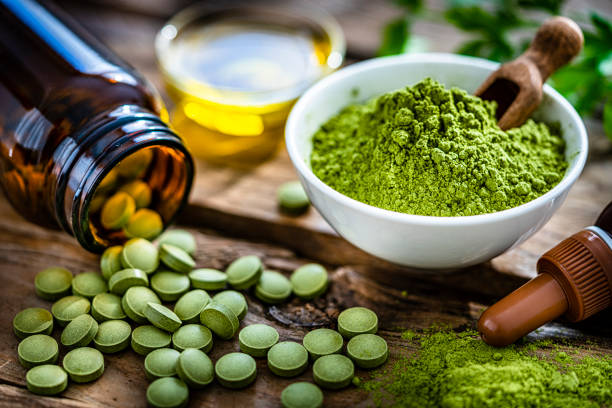
Sustainability and Growing Moringa
The cultivation of Moringa is notable for its sustainability and relatively easy growth, making it a valuable resource in various parts of the world. Here’s an overview of its sustainability and cultivation:
1. Sustainable Crop: Moringa is recognized for its sustainability as it thrives in diverse climates and soil types. It’s a hardy plant that requires minimal water and can grow in arid conditions, making it resilient in areas with limited resources.
2. Fast Growth: Moringa trees grow rapidly, often reaching maturity within a year. This quick growth rate allows for frequent harvesting, providing a continuous supply of leaves, pods, and seeds throughout the year.
3. Low Maintenance: Moringa trees are relatively low-maintenance and don’t demand extensive care or specialized agricultural practices. They can be cultivated organically and require minimal fertilizers or pesticides.
4. Utilization of All Parts: One of the remarkable aspects of Moringa is the utilization of its various parts. Leaves, pods, seeds, and even the roots have nutritional or medicinal value, minimizing waste and maximizing utility.
5. Economic Viability: Growing Moringa can offer economic benefits to local communities. Its multiple uses, from food and medicine to commercial products like oils and powders, create opportunities for income generation.
6. Global Accessibility: Moringa’s adaptability to diverse climates allows for its cultivation in different regions worldwide. This accessibility makes it a potential solution for addressing malnutrition and food insecurity in various communities.
7. Environmental Benefits: Moringa trees contribute to environmental sustainability by aiding in soil improvement and erosion control. They also act as a natural fertilizer, enriching the soil with nutrients.
The sustainable nature and ease of cultivation of Moringa make it an attractive crop for both subsistence farming and commercial agriculture. Its ability to thrive in challenging environments, coupled with its numerous uses and benefits, positions Moringa as a sustainable resource with the potential for positive social, economic, and environmental impacts.
Potential Side Effects and Precautions
While Moringa is generally safe for consumption and offers numerous health benefits, it’s essential to be aware of potential side effects and precautions:
1. Digestive Issues: In some individuals, consuming Moringa in large quantities may lead to digestive issues such as diarrhea, nausea, or stomach upset. Starting with smaller amounts and gradually increasing intake can help mitigate these effects.
2. Blood Sugar Regulation: Moringa has been shown to lower blood sugar levels. Individuals with diabetes or those taking medications to regulate blood sugar should monitor their levels closely when consuming Moringa to avoid hypoglycemia.
3. Interaction with Medications: Moringa may interact with certain medications. Individuals on medications for blood pressure, blood thinners, or other specific drugs should consult a healthcare professional before adding Moringa to their routine to prevent potential interactions.
4. Allergic Reactions: While rare, some people may be allergic to Moringa. Those with known allergies to plants in the same family, such as ragweed or mustard, should exercise caution and consider consulting an allergist before consuming Moringa.
5. Pregnancy and Breastfeeding: There is insufficient research on the safety of Moringa during pregnancy and breastfeeding. Pregnant or breastfeeding individuals should consult a healthcare provider before using Moringa to ensure safety for themselves and their babies.
6. Dosage Considerations: Adhering to recommended dosages is crucial. Excessive intake of Moringa supplements or extracts can lead to adverse effects. Following guidelines provided by healthcare professionals or product labels is advisable.
7. Quality and Source: Ensuring the quality and source of Moringa products is essential. Opt for reputable brands and sources to minimize the risk of contamination or impurities in the supplements or products.
As with any supplement or dietary addition, it’s advisable to consult a healthcare professional before incorporating Moringa, especially if you have underlying health conditions, are on medications, or are pregnant or breastfeeding. Being informed and using Moringa responsibly can maximize its benefits while minimizing potential risks.
Moringa in Beauty and Skincare
1. Nourishing Properties: Moringa contains vitamins A, C, and E, known for their nourishing and antioxidant properties. These vitamins help rejuvenate the skin, promoting a healthy and radiant complexion.
2. Anti-Aging Benefits: The antioxidants in Moringa fight free radicals, reducing oxidative stress and potential damage to the skin cells. This can help diminish the appearance of fine lines and wrinkles, contributing to a more youthful-looking skin.
3. Moisturizing Abilities: Moringa oil, extracted from its seeds, is rich in fatty acids and nutrients that deeply moisturize and hydrate the skin. It’s light and easily absorbed, making it suitable for various skin types.
4. Skin Healing: Moringa’s anti-inflammatory and antimicrobial properties aid in soothing irritated skin and promoting healing. It can help alleviate skin conditions such as eczema, psoriasis, and acne.
5. Hair Care: Moringa oil is also beneficial for hair health. It nourishes the scalp, strengthens hair follicles, and moisturizes dry and damaged hair, promoting shine and manageability.
6. Cleansing and Purifying: Moringa extracts are used in cleansers and facial masks due to their purifying qualities. They help remove impurities, excess oil, and pollutants from the skin, keeping it clean and refreshed.
7. Natural Ingredient: As a natural and plant-based ingredient, Moringa is favored in skincare products, especially by those seeking natural alternatives without harsh chemicals.
Moringa’s versatility and beneficial properties have led to its incorporation into various beauty and skincare formulations. From moisturizers and serums to cleansers and hair care products, Moringa’s presence underscores its potential to promote healthier skin and hair naturally.
Future of Moringa Research
The future of Moringa research holds significant promise as scientists continue to explore its potential applications across various fields. Here are some areas expected to be focused on:
1. Health and Medicine: Ongoing research aims to further understand and validate Moringa’s health benefits. Scientists are investigating its potential in treating specific health conditions, exploring its anti-inflammatory, antimicrobial, and antioxidant properties for potential therapeutic use.
2. Nutritional Sciences: Moringa’s rich nutrient profile continues to intrigue researchers in the field of nutrition. Studies may delve deeper into its bioavailability, optimal dosage, and potential as a dietary supplement to combat malnutrition or support specific nutritional needs.
3. Agricultural Innovation: Research on Moringa cultivation techniques seeks to optimize growth conditions, improve crop yield, and develop sustainable farming practices. This includes exploring its adaptability to different climates and soil types.
4. Cosmetic and Skincare Industry: Continued exploration into Moringa’s skincare benefits may lead to the development of innovative beauty products. Research might focus on identifying specific compounds responsible for skin health benefits and their potential applications.
5. Environmental Sustainability: Moringa’s environmental benefits, such as soil enrichment and erosion control, may prompt research into its role in agroforestry, reforestation, and combating climate change.
6. Commercial and Industrial Applications: Investigations into novel uses of Moringa, such as its potential in biofuel production, water purification, or as a natural coagulant in industry, could expand its commercial applications.
7. Community and Global Health Initiatives: Research may also concentrate on the implementation of Moringa-based interventions in communities facing health challenges or nutritional deficiencies, aiming to improve overall health and well-being.
As scientific interest in Moringa grows, future research endeavors are likely to unlock more of its potential applications, leading to advancements in health, nutrition, agriculture, and sustainability. This ongoing exploration holds promise for harnessing the full range of benefits that Moringa offers to humanity and the environment.
Source to Get Organic Moringa Leaf Powder Capsules
Conclusion
Moringa stands tall as a nutritional powerhouse, offering a multitude of health benefits that have been recognized for centuries. Its rich nutritional profile, medicinal properties, and versatile applications in traditional medicine, skincare, and beyond make it a valuable asset for transforming health naturally.
FAQs
1. Is Moringa suitable for everyone?
Moringa is generally safe for most people but consulting a healthcare professional is advised, especially for pregnant or breastfeeding individuals.
2. How can I incorporate Moringa into my daily routine?
Adding Moringa powder to smoothies, salads, or soups is an easy way to enjoy its benefits.
3. Can Moringa help with weight loss?
While not a direct weight loss solution, its nutrient density and potential to regulate blood sugar levels may support weight management.
4. Are there any known allergies to Moringa?
Some individuals may have allergic reactions to Moringa. It’s recommended to start with a small amount to check for any adverse reactions.
5. Where can I find quality Moringa products?
Reputable health food stores or certified online retailers often offer high-quality Moringa products.

